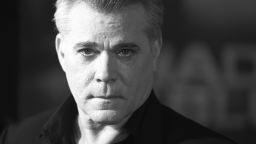Editor’s Note: Gene Seymour is a critic who has written about music, movies and culture for The New York Times, Newsday, Entertainment Weekly and The Washington Post. Follow him on Twitter @GeneSeymour. The opinions expressed in this commentary are solely those of the author. View more opinion on CNN.
The changes that “Star Trek” brought about to the global village sometimes seem as vast and multidimensional as that “final frontier” where several iterations of the Starship Enterprise have boldly gone for more than half a century now.

Most of those changes were far from apparent when what’s now digitally marketed as “Star Trek: The Original Series” premiered in September 1966. It’s true that one of the series’ leads was an extraterrestrial first officer with pointed ears and the eccentric but weirdly familiar name of Spock. Strange beings from another world weren’t always supposed to be heroes of these shows – that is unless they had secret identities with names like Clark Kent.
And there was the rest of the crew: men and women of different ethnic backgrounds in (more or less) the same uniforms. They weren’t just there for decoration. They had names, faces and crucial roles to play every week.
Perhaps the most striking of these support crew members was the cool, sultry, supremely self-possessed Lt. Nyota Uhura, played by Nichelle Nichols, still a relative newcomer to television.
Nichols died Saturday at age 89, and the sadness over her passing has been widespread enough to show how much impact she had in a science-fiction show that lasted only three seasons.
Just begin with the effect of her presence on the Enterprise bridge. To repeat, it was 1966, and at about that time, the civil rights movement that helped bring about transformative legislation such as the Voting Rights Act a year earlier had given way to the rise of the Black power movement whose advocates sought greater participation in the nation’s political and economic life. Racial tensions were thick.
Yet the sight of a poised, physically commanding Black woman riding aboard a galaxy-spanning spaceship suggested to viewers, especially younger ones, that somehow the uncertain present would give way to a promising, perpetually challenging future and that, somehow, we were going to work our way out of racial troubles and reach for more distant stars.
Maybe you had to be there. But “Star Trek” and every movie, cartoon, book and series it spawned remains a beacon of hope. And Nichols’ Uhura played a significant role in lighting that beacon even if, after the first season and the show’s so-so ratings, she wasn’t sure it was worth another go-round. She was discouraged by her lines being cut from some of the episodes and was ready to move on to the Broadway stage.
And she would have left if she hadn’t met a die-hard “Trek” fan at an NAACP fundraiser in Hollywood: the Rev. Martin Luther King Jr.
King, Nichols remembered, insisted on meeting her. He told her that he and his family enjoyed watching “Trek” and rooted for her playing a non-stereotypical Black character. She thanked him but said she was on her way out.
“You cannot and must not!” Nichols recalled in her autobiography King saying. “Don’t you realize how important your presence, your character is? Don’t you see? This is not a Black role, and this is not a female role… You have broken ground. For the first time, the world sees us as we should be seen, as equals, as intelligent people – as we should be.”
Nichols was persuaded – as who wouldn’t be. She stayed for the remaining two seasons, gradually expanding her presence to the point that in the show’s third season, she and series star William Shatner as Capt. James T. Kirk had an unprecedented on-camera interracial kiss.
As with the other cast members, Nichols figured “Trek’s” cancellation in 1969 was the last of it. But the show found multitudes of viewers in syndicated reruns that led to voicing a Saturday morning “Trek” cartoon series, appearances at “Trek” conventions all over the world and performances in six “Trek” feature films in from 1979 to 1991.
Nichols also recognized her importance as an inspiration and role model for young Black people whose dreams of space science and travel were emboldened by her character’s futuristic adventures. She did promotional work for NASA, including an early public service announcement for the maiden voyage of the space shuttle Enterprise.
Life for Nichols wasn’t all about Uhura. She popped up in several feature films, including as Cuba Gooding Jr.’s mother in “Snow Dogs” (2002), and she won a Daytime Emmy nomination for her 2017 guest appearance on “The Young and the Restless.”
But her larger and likely most enduring legacy can be gauged by the number of astronauts of color who flew into orbit on now-mothballed space shuttles and still log hundreds of hours aboard the International Space Station, either inside doing experiments or outside performing repairs. Their successes became real because Nyota Uhura helped make them seem less impossible than they once did.
Martin Luther King Jr., that unlikeliest of Trekkies, had it right.






